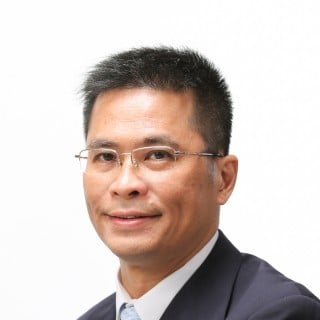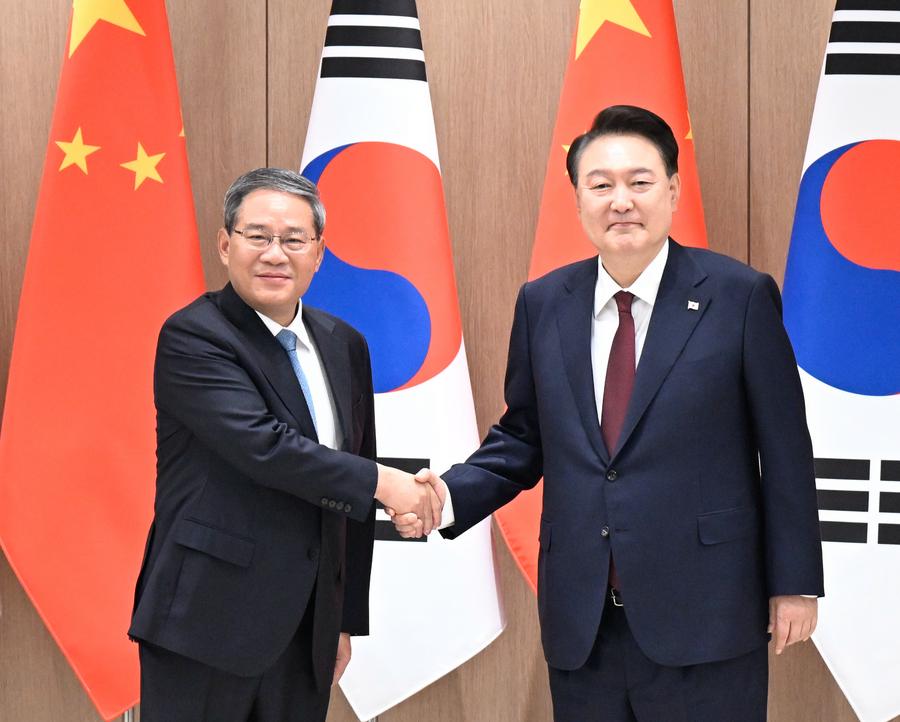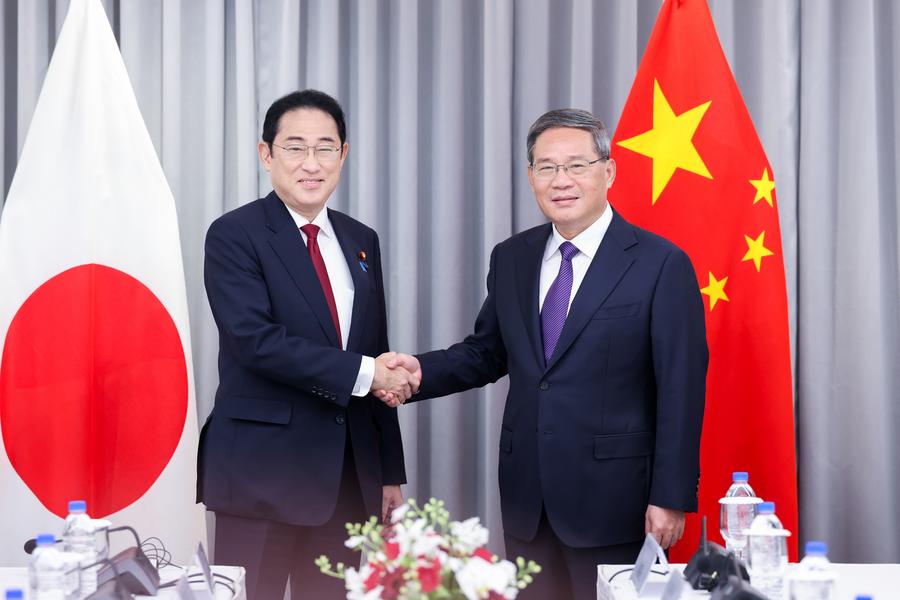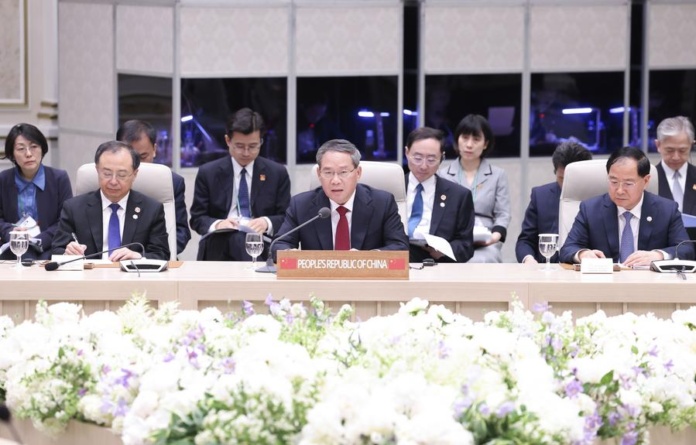The most recent trilateral summit held between the Chinese Premier Li Qiang, the South Korean President Yoon Yeok-seol and the Japanese Prime Minister Fumio Kishida in Seoul on May 26 was a testimony to the persistence of economic pragmatism in Northeast Asia – a phenomenon pointing to a cautiously optimistic future despite its geopolitical and military tensions involving the power politics of North Korea and the US.

The summit in Seoul was held for the first time after December 2019, which was then followed by the onslaught of Covid-19 and its variants in the entire world. The trilateral summit on May 26 reached some important consensus, one of which is the acceleration of the second stage of the negotiation over Sino-Korean free grade agreement and the other is the continuation of the trilateral dialogue between the three East Asian nations on trade, economic issues and human interactions.
Li Qiang hoped China and South Korea would respect the core interests and concerns of both countries, while being good neighbours at the same time. Moreover, Li added that the logistical supply chains of the two nations can be mutually beneficial and integrated, that economic and trade cooperation can be deepened and broadened, that the Sino-Korean Changchun International Cooperation Demonstration Zone will have its construction process accelerated, and that mutual cooperation in high-end production, new energy, Artificial Intelligence and biochemical and pharmaceutical areas can have stronger collaboration than ever.
President Yoon appealed to Li Qiang for China’s active function in dealing with the nuclear weapons issue on the Korean Peninsula and the North Korean-Russian military cooperation – a point that was clearly far more geopolitical in gesture than having any response from Li Qiang.

Yoon also said that South Korea and China should maintain close cooperation and promote their national development, thereby contributing to world peace and prosperity. South Korea, to Yoon, maintains the one-China principle and is willing to deepen the mutual interests of both countries in the areas of bilateral trade and human interactions.
The South Korean president added that both South Korea and China should initiate talks between their deputy foreign ministers on a whole range of issues, promoting youth and cultural exchanges.
Li Qiang met Samsung Electronics Chairman Lee Jae-yong – their first meeting in 19 years as Li visited Samsung in 2005 when he was an official under party-secretary Xi Jinping in Zhejiang province. During the May 26th meeting, Lee expressed his gratitude to China’s assistance to Samsung during the COVID-19 period as Beijing at that time allowed charter flights for Samsung employees to travel to China and prevented production termination at Samsung’s semiconductor plant in Xian during the lockdown in the mainland.
Li Qiang told Lee that Samsung’s cooperation with China is an indication of Sino-Korean economic collaboration. Li hoped Samsung would collaborate with the mainland Chinese enterprises in high-end production, digital economy, and Artificial Intelligence, apart from his encouragement of Samsung to deepen and broaden its investment in China.
On the other hand, China and Japan agree to enhance their communications at all levels. Li Qiang told the Japanese side that China expects Japan to deal with the matter of history and the question of Taiwan appropriately so that Sino-Japanese relations can and will be stabilised constructively. On the question of the polluted waters resulting from the Fukushima Daiichi Nuclear Power Plant, Li Qiang appealed to the Japanese side that it should fulfil its responsibilities and obligations, because the release of the wastewater bears on the health of the humanity.
In fact, Kishida and the Chinese President, Xi Jinping, had already agreed in November last year to resolve the treated water dispute through consultative dialogue.
In his meeting with Li Qiang, Kishida appealed to the Chinese side to lift an import ban that China imposed on the Japanese marine products starting from August 2023.
Kishida added that a constructive and stable relationship is beneficial to not only both Japan and China but also the world. He expressed his hope that both sides should conduct high-level dialogue over economic and trade issues as well as cultural and human interactions.
Yoon and Kishida discussed how South Korea and Japan can and will deepen cooperation in 2025, which will mark the 60th anniversary of diplomatic relations between the two countries. Both nations perceive North Korea as a military threat, trying to resist and check against Pyongyang’s nuclear weapons study and development. South Korea and Japan have a common interest in witnessing the process of denuclearization on the Korean Peninsula. They expressed their common concern about the support of Russia, and China, for North Korea. Japan remains unhappy with how North Korea handles the allegedly kidnapped Japanese. Both Yoon and Kishida agreed with the necessity of cooperating with the US.
In early May, Kishida reiterated his hope that a summit with North Korea could and would be held, with the support of the international community, including the US. Yet, Pyongyang turned down the proposal, saying that North Korea “has nothing to solve as regards the ‘abduction issue’ insisted by Japan.” In 2002, North Korea reportedly admitted that it had sent agents to abduct 13 Japanese in the 1970s and 1980s. The Japanese Prime Minister Junichiro Koizumi paid a visit to Pyongyang in 2002 and met Kim Jong-il at that time, followed by the release and return of five Japanese from North Korea. But diplomatic deadlock returned to the two countries after Tokyo criticised Pyongyang for not coming clean about the abducted victims.

Analytically speaking, the trilateral summit is beneficial to the peaceful relations between China, South Korea and Japan, particularly as the three nations are adopting the ideology of economic pragmatism while putting aside their different political interests and agendas.
Still, political differences remain an obstacle to a closer relationship between the three nations. While Japan and South Korea are necessarily pro-US, China remains defiant in the face of its perceived US hegemony. As such, the question of North Korea comes in; Pyongyang is perceived as a military threat by both South Korea and Japan, which then have to rely on the US to check and balance North Korea. Recently, it has been reported that a large batch of Russian engineers went to Pyongyang to assist North Korea in dealing with the launch of the detection satellites. In November 2023, North Korea launched the first military detection satellite into space, and it is planning to launch three more in the year 2024.
The China-Japan-South Korea Free Trade Agreement negotiations are perhaps the most important breakthrough in the trilateral summit on May 26. In their Joint Declaration, the three countries emphasised the importance of ensuring transparent, smooth, and effective implementation of the Regional Comprehensive Economic Partnership as a foundation element for the China-Japan-South Korea free trade agreement. They are also committed to continuing discussions on how negotiations can be speeded up so that the free trade agreement would be free, fair, high-level, reciprocal, and uniquely valuable.
According to the Chinese Ministry of Commerce, the industrial chains of China, Japan and South Korea are highly interconnected, and as such, a free trade agreement between the three countries will expand market openness, reduce trade barriers, enhance trade and investment, and optimise the business environment. At a time when China has been emphasising the liberalisation of the economic and trade atmosphere in the world, and at a time when the US has become fa more self-protective than ever before, any free trade agreement between Beijing, Tokyo and Seoul would likely become a challenge to the US economic influence in Northeast Asia.
Most importantly, any free trade agreement between China, Japan and South Korea will likely be beneficial to the liberalization of the economy and society in North Korea. In this connection, China’s role as a middleman will remain crucial, especially as South Korea expects China to play a more active and assertive role in convincing and influencing North Korea toward the directions of denuclearization and economic liberalisation.
In conclusion, economic pragmatism prevails in the trilateral economic summit between China, Japan, and South Korea. Although China has different political positions and interests compared with Japan and South Korea, the summit was productive, healthy, and constructive, as they all focused on the need to deepen economic cooperation and human interactions – a precondition for peace and prosperity in Northeast Asia. Most importantly, their intention of deepening and accelerating the discussion of a free trade agreement is a significant move – a direction of persistent economic pragmatism amid geopolitical tensions and a shrewd move in the liberalisation of Northeast Asian regional political economy that will perhaps hopefully and slowly open up North Korea and propel Pyongyang to the path of further economic liberalisation, if not necessarily denuclearization.
*Sonny Shiu-Hing Lo is a political scientist, veteran commentator, and author of dozens of books and academic articles on Hong Kong, Macau, and Greater China




















